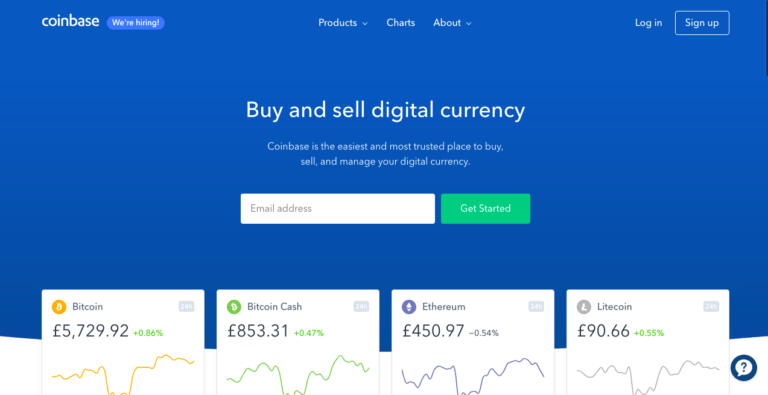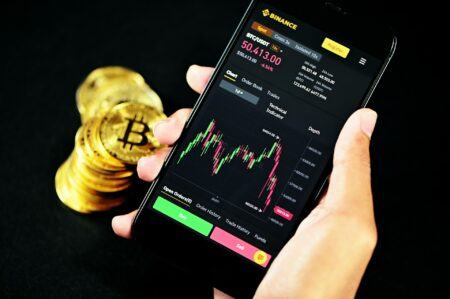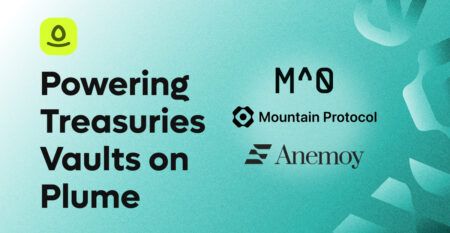On Wednesday, Coinbase, one of the largest crypto exchanges in United States, took a giant step on the path to becoming the first SEC registered/regulated crypto exchange through its acquisition of Venovate Marketplace Inc, Keystone Capital Corp, and Digital Wealth LLC.
Currently, in the U.S., crypto exchanges such as Coinbase and Gemini are not registered (at the federal level) with the Securities and Exchange Commission (SEC), which means they may only buy/sell cryptoassets the SEC does not consider to be securities, i.e. cryptocurrencies such as Bitcoin (BTC), Litecoin (LTC), and Bitcoin Cash (BCH). In fact, on the same day, in an interview with CNBC, the SEC chairman, Jay Clayton, said that cryptocurrencies like Bitcoin are not securities:
“Cryptocurrencies: These are replacements for sovereign currencies, replace the dollar, the yen, the euro, with Bitcoin. That type of currency is not a security.
This is in contrast to Initial Coin Offerings (ICOs), most (if not all) of which the SEC views as securities, as Clayton once again confirmed yesterday:
“A token, a digital asset where I give you my money and you off and make a venture — you have some company you want to start — and in return for me giving you my money, you say, you know what, I’m going to give you a return, or you can get a return in the secondary market by selling your token to somebody. That is a security, and we regulate that. We regulate the offering of that security and we regulate the trading of that security.”
Of course, the situation with Ethereum (ETH) is less clear, and the SEC does not seem to want to talk about it, perhaps because if it claims that Ethereum is a security, then one could ask why it has not filed charges against any of the U.S. based crypto exchanges that have been providing a secondary market for it?
If Coinbase wants to deal with non-currency cryptoassets, i.e. securities in the eyes of the SEC, it needs to be registered and regulated by the SEC under the Securites Exchange Act of 1934. Here is how the SEC explained this in a public statement titled “Statement on Potentially Unlawful Online Platforms for Trading Digital Assets” on 7 March 2018:
“If a platform offers trading of digital assets that are securities and operates as an “exchange,” as defined by the federal securities laws, then the platform must register with the SEC as a national securities exchange or be exempt from registration… To get the protections offered by the federal securities laws and SEC oversight when trading digital assets that are securities, investors should use a platform or entity registered with the SEC, such as a national securities exchange, alternative trading system (“ATS”), or broker-dealer.”
Since it is not very difficult to get registered by the SEC as a national securities exchange (an example is the New York Stock Exchange), the only other way to offer a trading platform that allows buy/selling of securities is register that platform as an Alternative Trading System (ATS). What is an ATS? This is the SEC’s definition:
“An ATS is a trading system that meets the definition of ‘exchange’ under federal securities laws but is not required to register as a national securities exchange if the ATS operates under the exemption provided under Exchange Act Rule 3a1-1(a). To operate under this exemption, an ATS must comply with the requirements set forth in Rules 300-303 of Regulation ATS.”
One of the main requirements for complying with Regulation ATS is registering as a broker-dealer. Under Section 3(a)(4)(A) and Section 3(a)(5)(A) and the Security Exchange Act 1934 respectively, a broker is “any person engaged in the business of effecting transactions in securities for the account of others” and a dealer is “any person engaged in the business of buying and selling securities for his own account, through a broker or otherwise.”
Also, according to the SEC’s “Guide to Broker-Dealer Registration”, in most cases, broker-dealer registration also requires the applicant to join a “self-regulatory organization” (SRO), such as Financial Industry Regulatory Authority (FINRA).
Now, let’s come back to the three acquisitions Coinbase announced on Wednesday. All three have SEC and FINRA registration: Venovate Marketplace and Keystone Capital as “broke-dealer” (what FINRA calls “Brokerage Firm”) and Digital Wealth as “investment advisor”. However, Venovate Marketplace has one type of SEC registration that is not too common and one which is especially important to have for any crypto exchange that wants to deal with securities: an ATS license. You can verify this by checking the SEC’s “Alternative Trading System (“ATS”) List”.
This is how Asiff Hirji, President and COO of Coinbase, announced these acquisitions on The Coinbase Blog:
“Today, we’re announcing that Coinbase is on track to operate a regulated broker-dealer, pending approval by federal authorities. If approved, Coinbase will soon be capable of offering blockchain-based securities, under the oversight of the US Securities and Exchange Commission (SEC) and the Financial Industry Regulatory Authority (FINRA). This step forward is being made possible by our acquisition of a broker-dealer license (B-D), an alternative trading system license (ATS), and a registered investment advisor (RIA) license.
There are now many types of blockchain-based digital assets, from cryptocurrencies to security tokens to collectibles. In the United States, some of these assets will be subject to SEC oversight. With this in mind, securing these licenses will bring us a step closer to our goal, which is to be the most trusted way for our customers to buy, sell, and use many different types of crypto assets.”
Once Coinbase’s application to the SEC for an ATS license get approved, a process that should not take more than a couple of months since Venovate Marketplace already has an ATS license, it would be able to legally offer even cryptoassets that the SEC could consider to be securities, for example, Ripple (XRP), EOS (EOS), and TRON (TRX), which should make it easier for U.S. investors to trade cryptoassets. Furthermore, SEC registration makes Coinbase and its services more attractive to institutional investors since most of them, for obvious reasons, would prefer to deal with SEC-regulated brokers, trading platforms, and investment advisors. And of course, this can only be considered a very good thing not just for Coinbase, but for the crypto market as a whole.







